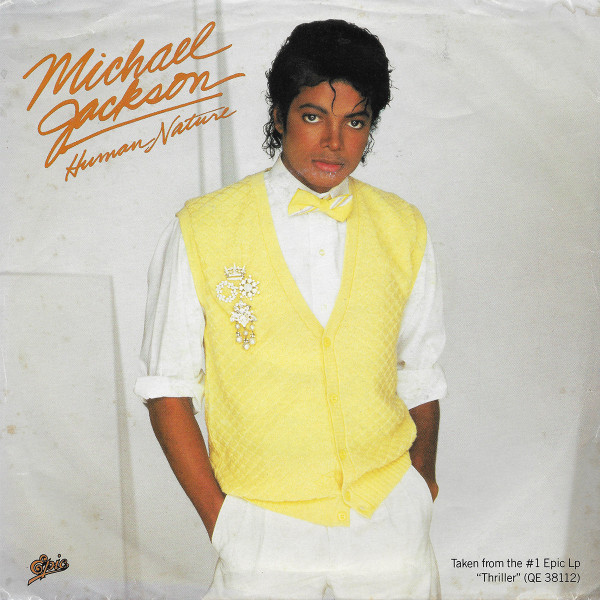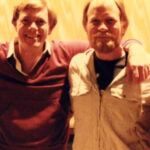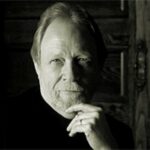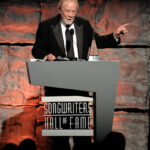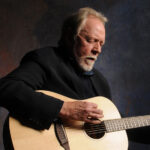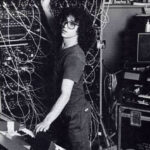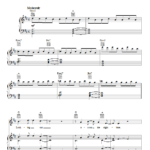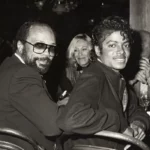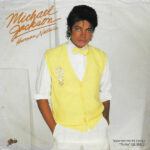The name of John Bettis can’t be unknown to you if you are interested in Michael Jackson’s discography. Indeed, co-credited with Steve Porcaro on the song “Human Nature” as its lyricist, he knew how to leave his print on this legendary track. I never imagined I would have the opportunity to interview him, but sometimes the planets align. In the midst of preparing the MJ MusicDay with Steve Porcaro, I spoke to Tom Bähler who said: “You should talk to John, he’s a friend of mine, I’ll let him know about your event”. That’s how John Bettis reached me, and said he was interested in our project to bring Steve to France to talk about his collaboration with the King of Pop. “How can I help?” was his question, and here is my answer through these interview lines. I thank him for sharing this fabulous musical experience, as a way to celebrate the 40th anniversary of the Thriller album on the site.
First, can you tell me how you grew a passion for writing and eventually made a career in music as a lyricist?
Writing, as a category, was something that the minute I could read, I wanted to do. I was three years old, maybe four, and once I had been taught to read, I began wanting to write things. For years, my mother saved a story I wrote when I was about five called « The Brown Dog » and I put it together very carefully with scotch tape. So it was a natural instinct on my part. Writing itself and especially language have been with me as long as my memory goes back. To me it was as natural as throwing a ball.
Regarding music, I never really noticed I had any musical talent because I was raised by farmers from rural America who had been farmers for hundreds of years. In that kind of culture, no one has any expectations of making a living at anything other than farming, let alone making a living at playing music! In my family, music had been for home entertainment, so I found out I could play when I was eight years old. On your eighth birthday, you had like an appointment and you picked a musical instrument to play and you took lessons and learnt how to play. I wasn’t raised on the farm but they continued the tradition even though we were in Los Angeles. So I went to the music store on my eighth birthday and my mother said: « What would you like to play? » I pointed at the drums and she said: « Point again. » I don’t know why but I pointed at the trumpet. She bought me this trumpet and I’m sure it was not a very good one. It was the oddest thing because I took it home and I kind of knew how to play it. Now the thing about a brass instrument is you can’t play it very well at the beginning because you have to develop the muscles around the mouth and learn how to breathe. So there are technical things that restrict you until you learn them. But I understood how it made a sound and how the valves worked, so I was faking my way through scales and stuff kind of early. I just knew how to play but I never really thought much about it. I became a competitive trumpeter in my early years from ages of 10 to 13 or 14 – I would get in my wool suit and I would go sit in that sweaty auditorium and play my Bach for people on stage. I did well enough at that but I was busy with other things – I was a very busy kid, a very curious kid – so I did a lot of other things and I worked at the family business very early. So it was just one of those things that I did. I enjoyed it but it never occured to me that I would do it professionally at all.
So what were the different steps that you took to become a famous songwriter in the music industry?
First, I was in the orchestra band in my high school and we played in the pit for the musicals every year. One year we did Gilbert and Sullivan’s The Pirates of Penzance, and one of the guys who played the trombone in the orchestra got to not be in the orchestra anymore – he got to be on stage with all the girls and he was terrific because he was the star of the musical! And I thought: « Well, I can do that! » So the following year, I tried out for the lead in the musical and I got it! During that time, I was introduced to the idea that people wrote songs and I bought my first guitar. My understudy for my role in the musical was into Folk music, he got me into it and we became a performing duo. It kind of all melted together because I had always written, so writing a song seemed just like an extension of writing the other things. But it wasn’t until Richard Carpenter that I realized where my talent and the uniqueness of me maybe was! And it was that I could just hear words inside a melody – I don’t know how to say it any other way. I mean, in my head, I can see the melody like architecture and it begins to illuminate, it begins to shine in my head if I am going to be able to write it. I had very good natural technique but I was not a very good lyricist for the first few years! (laughs) There are records that I would withdraw from the market if I could. So that’s how it all got started – I mean, there’s a lot more details but… For me – and I don’t know how it is for anybody else – it isn‘t a career, it’s a way of life. It certainly is right work for me and it kind of organically grew that way and the music kind of tagged along with it.
Richard and I started that group together (The Carpenters) and we wrote 38 of the songs they recorded. My great good fortune was to be in a partnership with Richard and with Karen, but in a different way. I mean, she and I were very close and we had almost identical sensibilities about everything. We performed together the first two years but it was best if Richard and I just were doing the writing. I had a great 70s with Richard and Karen – we were the largest-selling American record act of the decade. There were a number of what have come to be standards that came out of that. I kind of thought I had seen as high a mountain top as I was going to see. I continued writing, having hits and everything but I wasn’t expecting to have that meteoric experience happening again.
Then, in the 1980s, I was living in Nashville and Los Angeles. I had a lot of country hits. I wrote a song called « Slow Hand », here in Nashville, that became a big hit a couple of times (The Pointer Sisters & Conway Twitty). Then, Donna Summer was interested in a song of ours called « Heart Of The Night » and that’s how I met Quincy. I thought: « This is great! I’m doing lots of good records, I’m getting to work with people as iconic as Quincy – things were going pretty good! » Then, the Thriller album happened and I went: « Good God ! » I mean, there isn’t anything else like that. There’s the Thriller album and there’s everything else. It was global history all at once. I’ve had a lot of good experiences with a lot of great artists but I don‘t think anything could ever match what, first of all, Michael was like. I mean, I have only met whom I have met, but he’s certainly the most completely talented person that I’ve ever met. I’ve never seen anyone that could literally do EVERYTHING and do it well! He really could – he was as complete a showman as we’ve ever had…ever. He was an astonishing human being. I have had comparable single moments in narrow areas with great artists. Like when Whitney Houston sang my song « One Moment In Time » in that yellow dress at the Grammys, I thought I was going to faint! It was that good! There are other moments like that but they narrow down to something that someone is a particular genius at. Whitney was a genius singer: she had an infinite facility that her voice would perform for her. She could sing what she heard. And she heard things no one else heard. However, that’s narrowed down to vocal performance, brilliant as it was. Nobody covered all the bases on a genius level but Michael Jackson. Nobody. Not even close.
How were you asked to write the lyrics of the song « Human Nature »? How was that project explained to you?
I was a big fan of the Off The Wall album. Everybody I knew in Los Angeles who was a songwriter was trying to write a song for Michael’s new album. They were all great writers but to be honest, I was writing in a different way at the time. I was chasing the « Slow Hand », « Crazy For You », « The Woman In Me » sort of direction, and I had found a tone of voice lyrically that I was really excited about. I knew Michael was cutting and I was a huge fan, but I honestly thought to myself: « I really don’t have anything to say for Michael right now. Maybe in a year or two I’ll be through with all this and hopefully they will be recording another album and maybe I’ll get a song with him then.» Now, I had already worked with Quincy with Donna – I had written a song and we had worked on it together. Quincy was very generous about that. During the first year or so I worked with him, it was unsettling sometimes to remember it was Quincy sitting there! I mean, you get nervous, and you might think you’re over it, then you look over and that’s Quincy, so you go and get nervous again! It’s funny! Anyway, I wasn’t even paying attention to Michael’s new album. Then I heard that Michael and Quincy had finished, and I guess I knew Rod Temperton was also working on it, so I thought: « Oh, that’s great! Can’t wait to buy it! Can’t wait to hear it! » But then through my publisher, Quincy got my number and he called me. He didn’t normally do that, I mean, it’s not like he never called me, but I knew he was working on this record so why would he be calling… me? I figured he had a whole lot to do… On the call, I think he said he had found a piece of music and he asked what I was doing. I said I was writing but if I could help, I would. He said: « Yes! I’m going to send this over, I want you to listen to it, and I want you to see if you could write a lyric to it. » I was honored and, needless to say, excited I suppose… They sent it over by messenger – back in those days that’s what we did, you know, you couldn’t do it by computer, so a guy on a motorcycle or something came over with a pouch.
I am totally fascinated by your work and I have always wondered how inspiration came to songwriters, how they put some words on music. When you heard the music of « Human Nature », did you immediately know that inspiration would come?
I put the cassette Quincy sent me on in my den and I got to the second verse before the chorus, and I went: « Oh, oh, oh, oh!… » I told you before I can get the architecture of a melody in my mind and when it starts to illuminate for me, I realize I can probably write this one. The melody was kind of jumping out of the speakers at me. So I sat down in my den where I normally didn’t write, and I started jotted lyrics. When I wrote the line « If this town is just an apple, let me take a bite », I closed up the pad I was writing in, got myself a glass of red wine and went up to my office. It’s something you learn about yourself, you know: when you write a line that is better than you really are as a writer, which that was, right? That was easily one of the best lines I had written up to that point. So I went: « Ok, ok, now let’s take this seriously! We’re going to be able to pull this one off! » So I went upstairs and I honestly wasn’t paying attention to the clock but some three hours later, maybe a little more, I was finished. I can’t tell you how I let them know but I think I might have left a message for my publisher because I don’t think I had Quincy’s number. I somehow let somebody know that I had the lyrics finished but I can’t recall how. They got back to me somehow the next day and said I had to meet Steve, whom I hadn’t met, the following day at his house in the valley. And, oh yeah, Quincy let me know that they wanted to record it the next day! (laughs) But I mean, if you don’t like pressure, you shouldn‘t do what I do for a living. We didn’t even have printers but I had an IBM selectric typewriter that I could print out of so I took three or four typewritten copies over to Steve’s house.
What was your working method with Steve Porcaro?
Steve was great and we had to straighten out the form. He had had a musical inspiration based on an experience his daughter had, so he had the first snippet of the chorus, no other words. I didn’t know anything about that story and I wrote it about something else. So, at first, Steve was kind of taken aback because my inspiration was centered around something I felt Karen and Michael had in common, very strongly. And it was something I wished I had said many years earlier. So I wrote it about that – it was very risky and self-absorbed of me to do it that way, but I did. Steve hadn’t seen a lyric to his music before and the story I was telling was a departure from the inspiration he originally had, however he is a really good musician and he could tell that it fit. He went through it and I think he had to absorb it a couple of times just to reassure himself that it fit. It was pretty much ok but it wasn’t in the right shape. It was around 1 or 1:30pm and we had to be at the studio by 4. I had to straighten it out lyrically a bit. I thought the bridge was going to be just instrumental kind of like the intro is, but he wanted vocalisation on that, so I went : « Well, let’s see if there’s something easy you can say. » (laughs) That’s why it’s so simple because to me, it felt like lyrics would just put lead shoes on it. Then, we took it to the studio.
Quincy Jones had felt the potential of the demo of « Human Nature ». Did you feel some kind of pressure when you joined that ambitious project with Michael Jackson and Quincy Jones?
Well, there were two inspirational people in the room: there was Michael and there was Quincy. If you cut Quincy open, you’ll find an arranger. I mean, he’s a great casting director and producer but when you listen to Quincy’s records, there’s a reason that they sound so complete because they always sound finished, they always sound musically right but never busy. This is because he is a brilliant arranger in the real sense of the word. So I knew that I’d better bring all my technical skills to the party if I was going to write songs for Quincy! (laughs) He’s a trumpet player on top of it, and so was I. There’s a sense of rhythm that you get from playing that instrument, in using your tongue the way you do, because the tongue articulates the tone of the trumpet. So it was both of them: I was inspired to do well by the fact that it was Michael and Quincy.
Steve Porcaro already had some lyrics on his demo (« Why, why… »). Do you find it more difficult to follow somebody else’s ideas and vision or to start from scratch?
Yes, he had « Why, why… » and I think he had « Tell ‘em that it’s human nature » or at least « human nature ». The connective words, I can’t recall if we had to refine that or not. But that was it: the rest of it wasn’t there. Like I said, I didn’t know what his ideas or vision were, and I’m very glad because from my seat, I was speaking to Michael. I know it was presumptuous of me in the extreme, but I was actually writing something for Michael the artist to sing because my first job was to submerge myself in my artistic reaction to him as a performing artist, to kind of lose myself in the artist personality and make sure that what I am writing for him to sing feels comfortable. That’s why each lyric I write is always my style but they’re always slightly different too because every performer is different. That was definitely influencing the choosing of the /aʊ/ sound, and the /t/ sound. Michael was a rhythmic singer, and his sense of inner clock and inner rhythm was so impeccable that I wanted to do my level best to give him a chance to use that talent of his to the extreme. Using an /aʊ/ diphtong sound going into a hard consonant like /t/ would give him the opportunity to put the maximum out of rhythm. Words like « nightime », and lines like « if this town is just an apple, let me take a bite » would provide explosive consonants to deal with. The consonants make the rhythm easier for the performer to express.
In my methology – and I think it’s probably true – the existence of music among homosapiens predates. There may have been nouns for utility say, like « help », « run », « antelope » but that’s utilitarian, that’s not really language, that’s identification. Language is a different thing: language is not a dictionary. Language is conceptual connections, not identification. I think for many primal reasons they would have articulated music much earlier, perhaps even millennia before they articulated langage in a way that we think of as language. What I’m doing right now, probably was begun thousand of years after there were wood musical instruments and intonations and hunting chants and all that. Once language began to grow up, that was the great lyricist moment like « Ok, how do you fix words to that? » During the creation of all these things, there weren’t schools, nobody could read, nobody could write. These were all things that were done when the conscious and the unconscious mind were much more melted together. So the closer I can get back to what is the primitive music, the primitive expression in the intonations I’m given, in the melodies I’m given, the closer I can get to the primal language, the more aroused the audience will be by it. What really makes music work is how it insinuates itself in the unconscious – that’s what really makes it work. Language can either helped that or get in the way. And boy, I have really got in the way a lot in my life.
Did you discuss the lyrics of the song with Michael Jackson?
At the session, yes. Quincy immediately approved of the lyrics. In retrospect, thinking about it later, I was relieved. I don’t know if he said « This is good » or « This is great » but it was clear that he liked it. I had retitled it « I Like Living This Way » but Quincy said he really wanted it to be called « Human Nature ». So I said: « Ok, that’s your job. » I don’t recall how we presented it, but it must have been Steve who did it. We went through it one time and that was all that it took. Michael kept looking at it but everybody else went into « Ok, let’s record this mode. » At the session, David Paich was already there, and of course Steve was already there, and it seems like there was a third musician, I mean beside Rod Temperton, but I can’t recall who it was… It might have been another member of Toto and it could have been Luke (Steve Lukather). At one point, we played it for David before we played it for Quincy, and David wanted to rearrange the chords but Steve wouldn’t let him – that was a moment! (laughs) After the lyric was accepted, everybody got really busy patching in the synthesizers and setting up to actually begin making the recording of it. Michael took me off and we had a very touching short time together. It was the first time I had ever spoken to the young man and it was very intimate. He was quite withdrawn but he still possessed the power of that individual, and you could just feel it. He spoke very softly and he wanted to know how I knew to write that lyric for him. That’s when I realized I had gotten through. I told him about Karen and her dying, and this was within a year of her passing away, so it was still fresh in my mind. You know, the connection was the enforced isolation from the world. Karen was sixteen or seventeen when we made it, and she was a star when she was nineteen or so. We were so young and she lived at home with her mom. She went from nobody to Karen Carpenter in like a year. She skipped a bunch of steps in emotional life because she was forced by stardom to isolate and when you do that, you suffer. And Michael was a superstar when he was like eight years old. I mean talk about skipping steps!… So I told him about that, that I felt a common theme for the two of them. We talked for a while about that sort of things and he thanked me for it. When I heard much later that it was one of the favorite songs he had ever recorded, I always feel gratitude for that.
It took a little while before the recording was released, and then Thriller became Thriller. Thriller wasn’t really Thriller the way we think of it now until after the Motown 25 television show. I remember watching that on tv and thinking: « Ok, now, all bets are off. » I’m a show business junkie and with the electronic delivery of television, you can feel it when those rare events happen that are an earthquake to the culture. When he moonwalked on that thing, I looked at my then wife and I said: « This is going to get crazy! THAT is changing everything. » And it did. The recording of « Human Nature » was eight or nine months, maybe more, before the Motown special so everything to that point had been pretty much normal or let’s say familiar until then. At that time, I was working with a dear friend of Michael’s named David Gest. David was trying to do a musical based on the life of Robert Burns. Michael had a recording studio at his house in Hayvenhurst and he was generously allowing David Gest, me and my collaborators to work on this musical in there. So from time to time, I would run into Michael there. It was nice because I thought I could tell the way we would talk to each other that that moment around « Human Nature » when he was a total stranger to me had had a resonance with him… He was always very companionable to me, as if we both knew something about each other that we never spoke about. We acted as if we were closer than we truly were. I had mutual friends especially one Indian gentleman that we shared. Michael would occasionally send greetings to me through our friend, and a couple of times a question, and I would answer the question and send it back. That was as close really as I could get and as close as to I ought to have gotten. That’s a specific rarefied world where Michael lived and the rules are different up there in that rarefied atmophere – they really are. But it was touching that he would send regards and ask questions of me, and I would give him honest answers. I never heard what the response to the honest answer was but I asked once because I couldn’t help myself: curiosity got the rest of me! I won’t divulge you the questions because I would be betraying his confidence. So it was a direct piece of advice and I asked: « What did Michael say? » and all the friend did was smile at me. I went: « Oh, ok, ok… » But I never really saw him after that, you know, after 1983 or 1984. I was busy doing other stuff too because I had just begun to do movies so I was on set in London, and here and there. I was distracted into my own thing. But it was almost like being in a movie with him in a way!
Through the lyrics of the song, I took the liberty of kind of offering him a piece of advice subtly. I thought Michael should actually go do what the song said to do. I think that would have been fun, first of all, fun for him, and secondly, it’s very hard for someone in Michael’s world to have the kind of personal freedom to be yourself and explore life and make connections with people and explore relationships. It can be damnably hard when you’re a superstar at that level to have genuine human contact. So I was kind of giving him an allegory he could live.
Do you remember the first time you listened to the final version of « Human Nature »? How did it feel?
Well, it surely wasn’t on the radio because « Human Nature » was the sixth single of the record so undoubtedly I listened to the record before I heard it on the radio. I wish I could remember the environs, where I would have been… I know what sound system it must have been on but I can’t remember the moment… Still, I can remember a feeling because I wasn’t there for the final vocal. I was around for some of the track recording that day but after a while it got to be where I really was a fifth wheel because they didn’t need me for anything, so I was just being a hanger-on. That felt awkward – it always does. I was there for the basic tracking with Steve and David and Bruce Swedien and everybody figuring out sound and all that, but once they were locked in on the sounds, they were getting to some specific performance of the pieces and how they layered it together. I remember hearing Michael’s vocal early on and being struck by how he had made it his own. Not that he found himself in it – I wasn’t surprised that he did that. But I was surprised about how he did it, and it’s hard to put that into words. There was a certain sense of a young stallion kicking at the walls of a stall. There was a certain strain at restraints to it. First of all, it was complimentary that he put that kind of artistic expression into it, but also he did such a damn good job at it. It was a very viril reading of that lyric, a very masculine reading, and that was very moving to me. There was a masculinity to that delivery that I was proud of him for finding and proud of me for writing. It was all there on the drawing board, I mean, the wheels were right there where they should be but he drove the car differently and brilliantly. He made it his own.
That track became a classic of Jackson’s discography. When a song becomes a hit, does it feel like it doesn’t belong to oneself anymore?
Yes, and they all do though, I mean, that’s the thing. I’m not going to give it away, don’t read me wrong! (laughs) But yeah, of course, it’s one of the real mystifying things about having songs that become commonly used. « One Moment In Time », « Top of The World », they go beyond being hits. They somehow strike a universal chord, thank God, with my fellow beings. That’s the best thing because that’s what I strive for – the universal soul in us all. That one certainly does. Most songwriters if they’re being honest, especially if you do it for a long time and do a lot of them, will tell you that you’re not really writing them anyway: they come to you. From the beginning, they’re that, and you really do mess up your writing if you try to hold on to it too hard. If you try to say « Mine, mine, mine, me, me, me… », if you do that, you seal off the doors to all the timeless ones you might yet write.
Which memories do you hold of your collaboration with Steve Porcaro, Quincy Jones and Michael Jackson?
Well, these guys, with Bruce and Rod, they invented half of what we’re still doing.
Thank you John Bettis!
